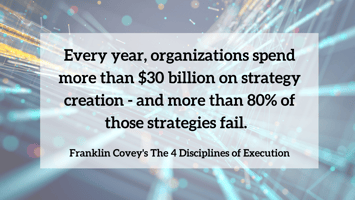Social Media is huge no matter what industry you are in. The engagement and traffic generated from...
5 Best Tips for B2B Marketing Automation
Automation is often associated with consumer-oriented businesses, but it can be just as valuable in a B2B setting. Implementing marketing automation into your campaigns can provide an overnight boost in performance.
This article will cover some of the top marketing automation tips for B2B businesses. Keep in mind that different strategies will be effective for different brands depending on a variety of factors including their niche, size, and audience preferences.
#1. Use Referral Programs
Referrals are a vital source of leads for many businesses, and consumers trust referrals from people they know more than any other form of marketing. A strong referral program gives your audience an incentive to tell friends, family, and business contacts about your company.
Automatic referral programs require significantly less time and fewer resources compared to manually managing referrals, and they’re surprisingly easy to set up. Furthermore, you can configure automated marketing emails to let subscribers know about your referral benefits.

Most companies offer a small bonus in exchange for each referral, and these programs typically lead to a much lower cost per lead than more traditional campaigns. Referral programs are a great way to start with marketing automation.
#2. Introduce New Customers
In order to sell your product or service to other businesses, you have to convince them that you can offer a real value. This is often the most complicated aspect of B2B marketing, as it’s not always simple to communicate with decision makers and illustrate the benefits of your brand.
Welcome sequences are one of the most effective automation workflows for both B2B and B2C businesses. Automatic emails can teach new customers about your features and help them get more out of your product or service. This is a much more cost-effective approach than spending time on one-on-one demos with each new client.
Additionally, many programs now offer powerful CRM features including tools for lead scoring and more natural engagement. Lead scoring involves monitoring interactions in order to determine when a lead is ready for your business development team. In other words, you’ll be able to meet customers at specific points in the sales cycle rather than using the same strategy for every new lead.
#3. Offer Chatbot Support
Customer support is a major expense for most B2B companies, and a live help staff can be extremely expensive. Fortunately, contemporary chatbots can respond to a variety of questions, reducing your overhead without impacting the quality of your customer support system.
Furthermore, chatbots have become incredibly easy to implement across a wide range of channels, making these interactions more convenient for your audience. Instead of treating each channel as a separate platform, look for ways to integrate them into a cohesive approach and develop better omnichannel communication with customers.
#4. Create Automated Follow-ups
Most users need to engage with a new brand several times before making their first purchase, so it’s crucial to follow-up after someone visits your site. Instead of contacting these people manually, automation allows you to trigger emails in response to specific behaviors such as viewing your pricing or adding an item to their cart.
Without automatic follow-ups, most users will simply move on and forget about your brand. A quick email will let them know that you’re interested in continuing the engagement, and it also gives them a chance to voice any questions or concerns. Each successive interaction increases the odds of turning a lead into a customer.
#5. Use Automation in Social Media
As in all areas of digital marketing, human input is necessary for some aspects of social media marketing. That said, you can automate numerous tasks in order to save time and money on social media campaigns.
For example, marketing automation software can handle things like responding to new followers, posting a regular content drip, and analyzing results to optimize future strategies. With these things happening automatically, you’ll have more time to focus on the tasks that are truly critical for your business.
Marketing automation can be intimidating at first, but automated campaigns lead to better performance on virtually every metric. These are just a few ideas to help B2B companies get started with automation and optimize their strategies for current trends and customer preferences.
Every company and platform is different, you need to find the right fit to have your automation to be effortless and effective.




